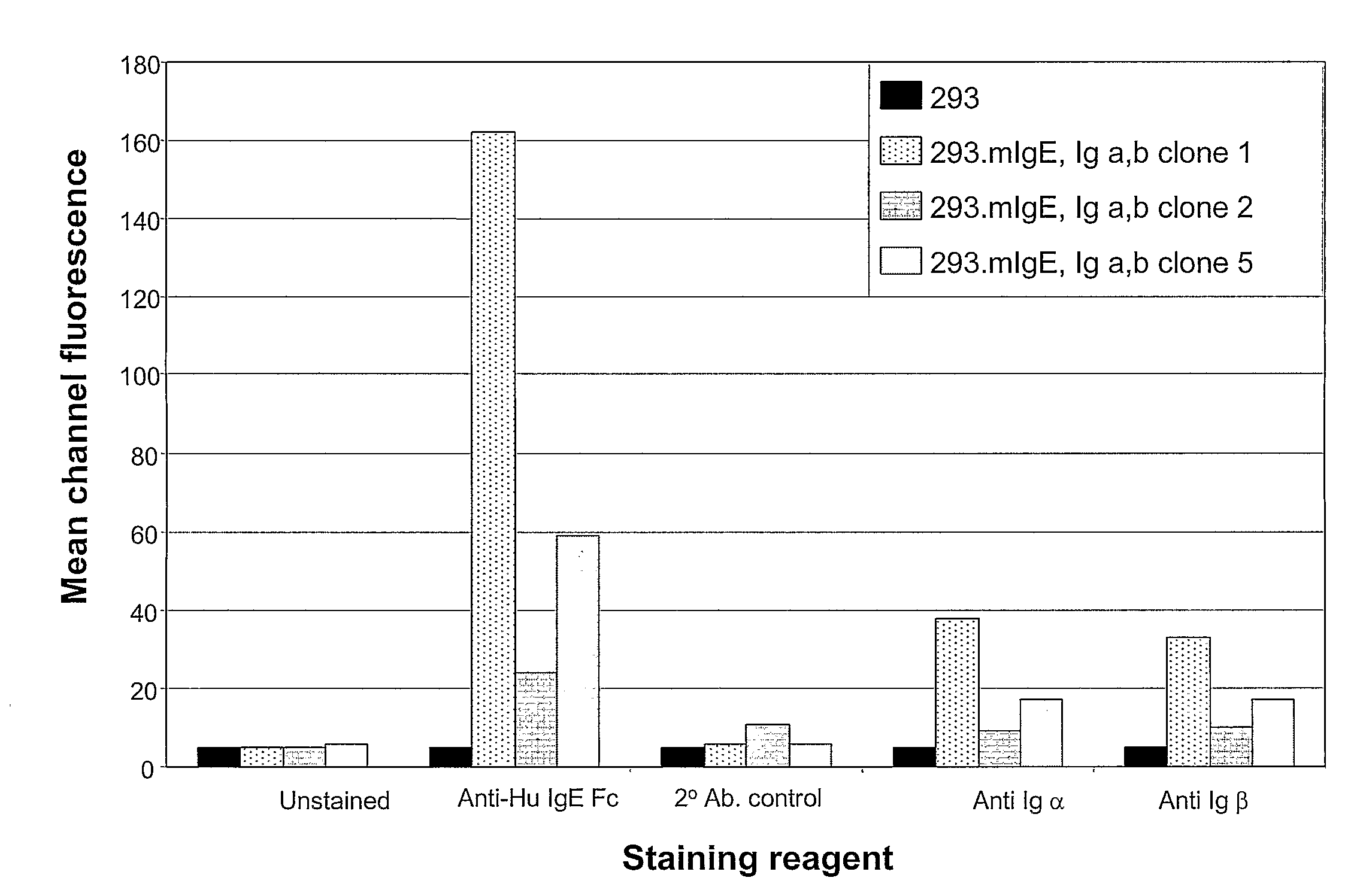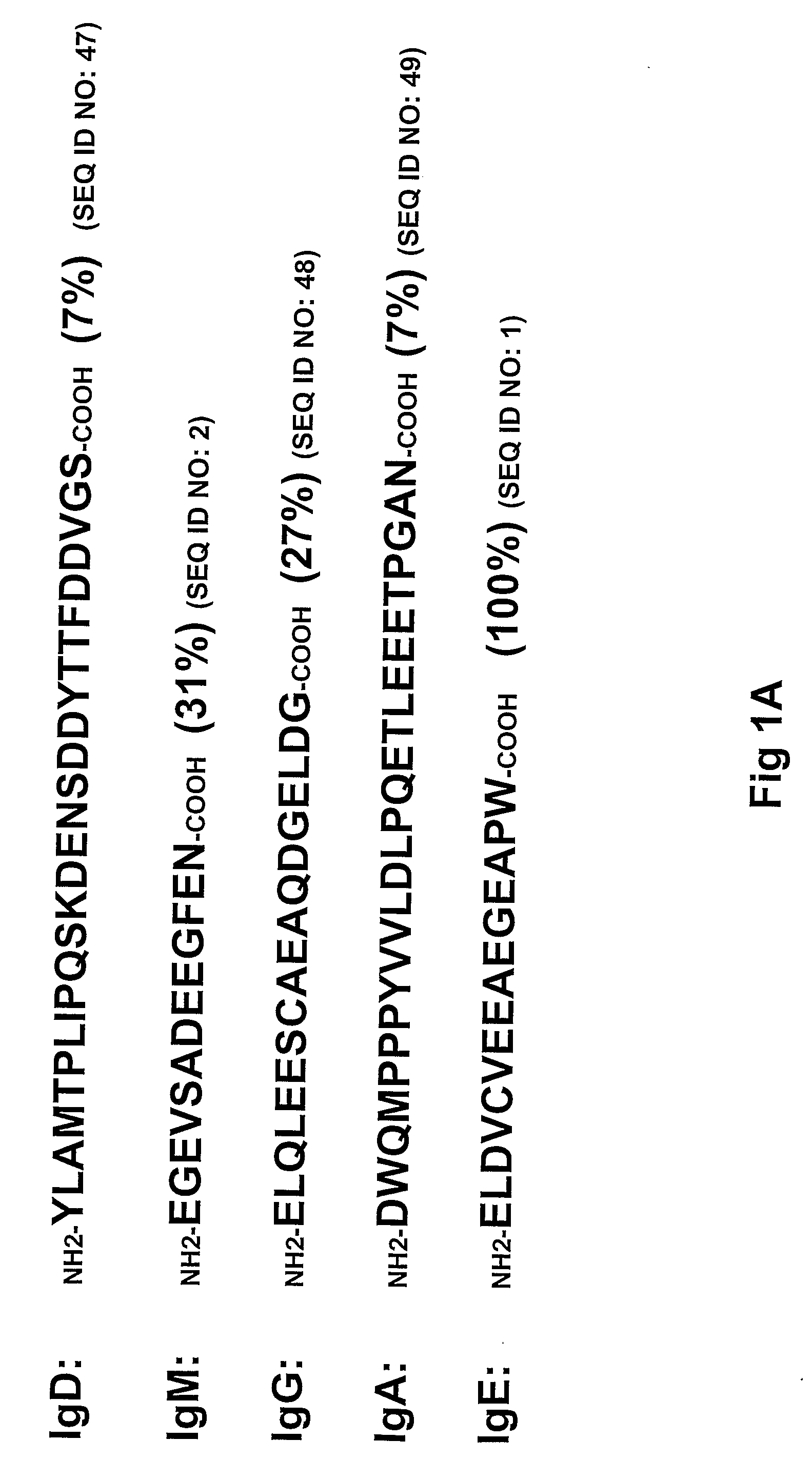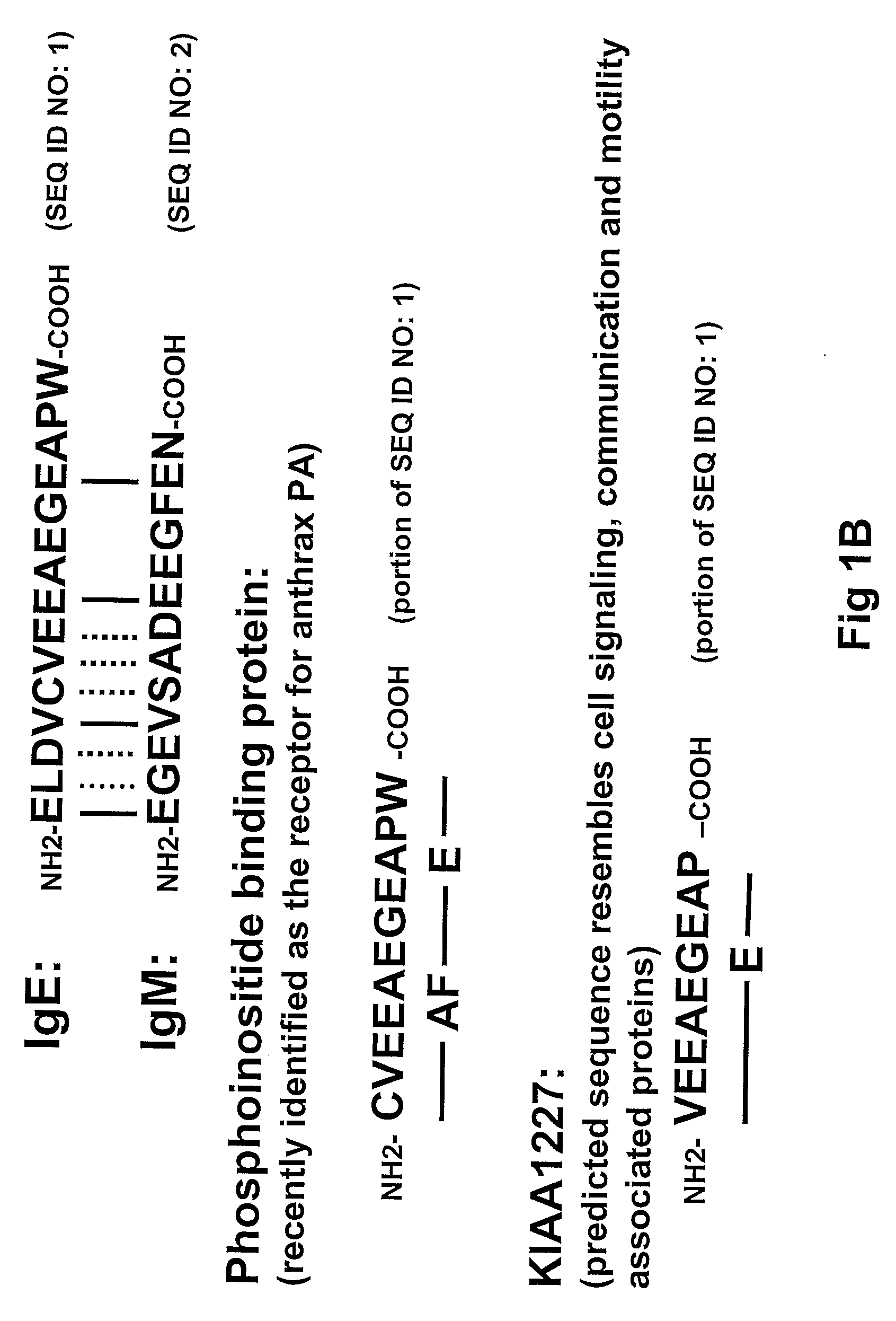Method of Identifying Membrane Ig Specific Antibodies and Use Thereof for Targeting Immunoglobulin-Producing Precursor Cells
a technology of specific antibodies and immunoglobulin, applied in the field of agents, can solve the problems of not being effective for treating patients with very high levels of soluble ige, not being effective for the treatment of diseases, and being prone to complications
- Summary
- Abstract
- Description
- Claims
- Application Information
AI Technical Summary
Benefits of technology
Problems solved by technology
Method used
Image
Examples
example 1
6.1 Example 1
Development of Human Anti 2-migis Antibodies
[0176]15 unique phage clones that bound the ε-migis peptide (SEQ ID NO.:1) were isolated from a naïve human Fab phage display library using standard soluble and immobilized antigen panning techniques. All of the isolated antibodies specifically bound the ε-migis peptide but not to a scrambled peptide by ELISA. However, only one antibody, designated “A1c,” (see FIG. 13) bound to cells expressing membrane anchored IgE. Upon further investigation it was determined that A1c also bound to other cell types including membrane IgM, IgA expressing cells and T-cells (data not shown). Examination of the ε-migisamino acid sequence revealed that part of the epitope is shared by other proteins including phosphoinositide binding protein, recently found to be the receptor for anthrax PA (Lu Q, et al., Proc Natl Acad Sci USA. 2004, 101:17246-17251, and unknown hypothetical protein, KIAA1227 (see FIG. 1B). A peptide corresponding to the region ...
example 2
6.2 Example 2
Binding Characteristics of D5, a Human Anti-cεmx.migis Antibody
[0193]To further characterize the binding specificity of the human anti cεmx.migis antibody D5, a recombinant IgE antibody (rIgE), was generated and expressed in 293 cells. Several variants of soluble rIgE in which the cεmx region (52 amino acid residues) or the cεmx-migis region (67 amino acid residues) were fused to the CH4 end (designated rIgE.cεmx and rIgE.cεmx.migis, respectively) were also generated and expressed. ELISA analysis demonstrated that the D5 antibody binds only rIgE.cεmx.migis and not IgE or IgE.cεmx indicating that D5 does not significantly bind to the cεmx region alone. This suggests that the cεmx.migis specific D5 antibody does not bind to soluble IgE and binds IgE only when it has both the cεmx and the migis peptide at its C-terminus. These data also suggest that a portion of the ε-migis peptide is involved in forming the epitope recognized by D5 (FIG. 7B).
[0194]A second series of recom...
example 3
6.3 Example 3
Biological Characteristics of D5, a Human Anti-cεmx.migis Antibody
[0199]D5 was tested in an ADCC assay to demonstrate that a human antibody against cεmx.migis was useful for depleting cell expressing membrane bound IgE. D5 was seen to mediate ADCC activity only against 293 cell that were transfected to express membrane bound IgE (FIGS. 10 and 11). The ability to mediate ADCC activity could be specifically inhibited by the addition of the cεmx.migis peptide (FIG. 11).
[0200]A valiant of the D5 antibody was generated having an aspartate at position 239, a leucine at position 330 and a glutamate at position 332 in the Fc region of the antibody (the numbering system is that of the EU index as set forth in Kabat et al., 1991, NIH Publication 91-3242, National Technical Information Service, Springfield, Va.), this variant was designated “D53M”. The presence of these amino acid residues at these positions in the Fc domain of IgG has been shown to enhance ADCC activity. As shown...
PUM
| Property | Measurement | Unit |
|---|---|---|
| concentrations | aaaaa | aaaaa |
| concentrations | aaaaa | aaaaa |
| concentrations | aaaaa | aaaaa |
Abstract
Description
Claims
Application Information
 Login to View More
Login to View More - R&D
- Intellectual Property
- Life Sciences
- Materials
- Tech Scout
- Unparalleled Data Quality
- Higher Quality Content
- 60% Fewer Hallucinations
Browse by: Latest US Patents, China's latest patents, Technical Efficacy Thesaurus, Application Domain, Technology Topic, Popular Technical Reports.
© 2025 PatSnap. All rights reserved.Legal|Privacy policy|Modern Slavery Act Transparency Statement|Sitemap|About US| Contact US: help@patsnap.com



